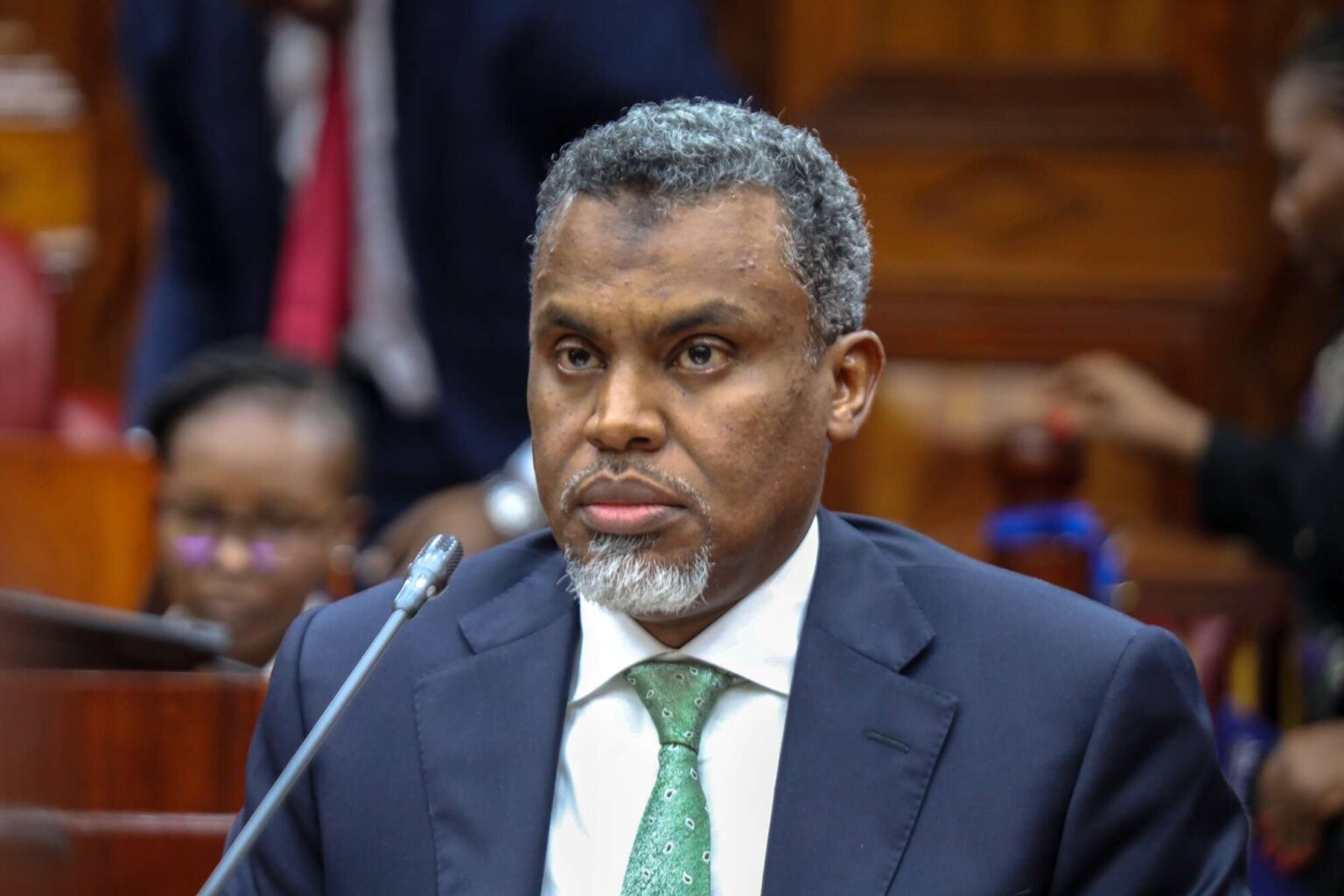News
SECURITY ALERT: NIS Chief Warns of Foreign Militia Invasion, Urges Enhanced Border Protection
“The military has not been getting the required equipment for the last 10 years to enable it to do its job sufficiently,” Haji stated, emphasizing the “dire” and “wanting” threat environment facing the country.

The National Intelligence Service (NIS) Director-General Noordin Haji has warned that foreign militia groups have already infiltrated parts of the country, putting national security at severe risk.
During an emotional appearance before the National Assembly’s Defense and Foreign Relations committee on Monday, Haji made the startling revelation that Kenya’s borders are under siege from multiple foreign threats, with only the Tanzania border remaining secure.
“We cannot beat around the bush. Let’s not lie to Kenyans,” Haji told lawmakers while defending his agency’s request for a Sh51.45 billion budget for the 2025/26 fiscal year.
“As a country, we need to be serious. There are threats from each of our neighbors except Tanzania. If our neighbors fail, we are in trouble.”
Border Crisis Reaches Critical Point
In his uncharacteristically candid testimony, the spy chief detailed how Kenya’s borders with Ethiopia, Uganda, South Sudan, and Somalia face significant threats from insurgent groups.
Most alarming was his revelation that the Oromo Liberation Army (OLA), a dangerous armed opposition group from Ethiopia’s Oromia region, has already occupied parts of Kenyan territory.
The OLA militants have caused numerous deaths in Northern Kenya, with a February 22 attack on Todonyang in Turkana resulting in what Haji described as a “massacre” with dozens of people still missing.
Security forces reportedly struggled to access the crime scene despite it being within Kenya’s borders.
Multiple Threat Vectors Identified
Haji outlined several critical security challenges:
– Al-Shabaab continues to penetrate the Somalia border, recently killing five police officers in Boni Forest, Lamu on May 2, just days after murdering five quarry workers in Mandera.
– Small arms are being smuggled across the South Sudan border by gun runners exploiting the volatile situation there.
– Karamojong raiders from Uganda frequently attack Kenya’s North Rift region, killing civilians and stealing livestock.
– The situation in Yemen further compounds regional threats to Kenya
Military Equipment Shortfall
Haji blamed inadequate funding of the Kenya Defence Forces (KDF) for the country’s vulnerability.
“The military has not been getting the required equipment for the last 10 years to enable it to do its job sufficiently,” Haji stated, emphasizing the “dire” and “wanting” threat environment facing the country.
His comments raised eyebrows as KDF Vice Chief of Defense Forces Lt. Gen. John Mugaravai, who had appeared before the same committee earlier, did not mention any funding shortfalls for military equipment.
The Department of Defence has been allocated Sh200.3 billion for the 2025/26 fiscal year, though this represents a decrease from the current year’s Sh204 billion.
Intelligence Agency Seeks Funding Boost
Haji’s testimony appeared designed to gather support for NIS’s proposed Sh51.45 billion budget, which includes:
– Sh10 billion for operations and maintenance
– Sh5.5 billion for intelligence modernization
– Sh2.5 billion for multisectoral security operations
– Sh2.5 billion for acquiring Unmanned Aerial Vehicles (UAVs) and surveillance equipment
– Sh1 billion for research and development
– Sh1 billion for personnel recruitment
The requested amount represents a reduction from the Sh65.7 billion initially sought by NIS before being adjusted to Sh52.5 billion in the Budget Policy Statement approved by Parliament.
Political Tensions Surface
The rare public appearance by the typically elusive NIS chief was not without controversy.
When Belgut MP Nelson Koech sensed Haji was revealing sensitive information, he ejected journalists from the meeting without committee approval.
Notably, committee members did not question Haji about allegations of enforced disappearances and abductions of Kenyans, despite former Attorney-General Justin Muturi publicly accusing NIS of abducting his son.
Muturi’s demands that abductions following last year’s GenZ protests be discussed by Cabinet reportedly led to his dismissal as Public Service Cabinet Secretary.
“We cannot gain anything from those politicizing everything, including allocations to NIS,” Haji said during the heated session. “It’s time the country was told the truth.”
As Kenya faces this multifaceted security crisis, the question remains whether increased funding alone will be sufficient to secure its borders against the array of external threats identified by the country’s top intelligence official.
Kenya Insights allows guest blogging, if you want to be published on Kenya’s most authoritative and accurate blog, have an expose, news TIPS, story angles, human interest stories, drop us an email on [email protected] or via Telegram
-

 Grapevine2 weeks ago
Grapevine2 weeks agoRussian Man’s Secret Sex Recordings Ignite Fury as Questions Mount Over Consent and Easy Pick-Ups in Nairobi
-

 News7 days ago
News7 days agoTHE FIRM IN THE DOCK: How Kaplan and Stratton Became the Most Scrutinised Law Firm in Kenya
-

 Investigations1 week ago
Investigations1 week agoMulti-Million Dollar Fraud: Three Kenyans Face US Extradition in Massive Cybercrime Conspiracy
-

 Economy1 week ago
Economy1 week agoIran Demands Arrest, Prosecution Of Kenya’s Cup of Joe Director Director Over Sh2.6 Billion Tea Fraud
-

 Business1 week ago
Business1 week agoA Farm in Kenya’s Rift Valley Ignites a National Reckoning With Israeli Investment
-

 Africa1 week ago
Africa1 week agoFBI Investigates Congresswoman Ilhan Omar’s Husband’s Sh3.8 Billion Businesses in Kenya, Somalia and Dubai
-

 Grapevine3 days ago
Grapevine3 days agoA UN Director Based in Nairobi Was Deep in an Intimate Friendship With Epstein — He Even Sent Her a Sex Toy
-

 Politics2 weeks ago
Politics2 weeks agoSifuna, Babu Owino Are Uhuru’s Project, Orengo Is Opportunist, Inconsequential in Kenyan Politics, Miguna Says
















